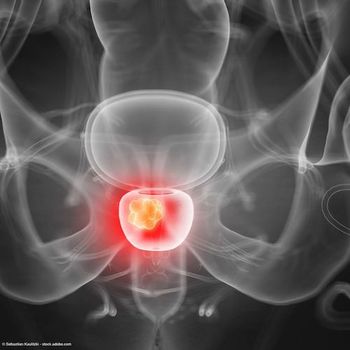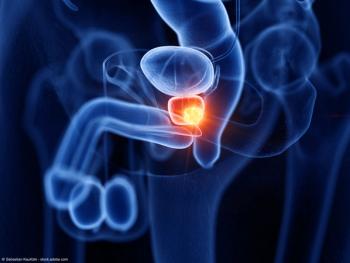
UCSF investigators improve MR-guided TRUS fusion biopsy for prostate cancer detection using HP 13C MRI

"HP 13C MRI provides a quick five-minute, non-radioactive, metabolic imaging add-on exam to standard-of-care MRI that, in conjunction with guided biopsies, has great potential to improve the care of prostate cancer patients,” said Robert Bok, MD, PhD.
The accuracy of biopsy sampling, which can miss clinically significant tumors, limits our ability to detect prostate cancer extent and aggressiveness. MRI-guided ultrasound fusion biopsies can improve accuracy, but often the standard-of-care MR images can miss some tumors and are not reliable for determining aggressiveness. Investigators from the Hyperpolarized MRI Technology Resource Center (HMTRC) at UCSF set out to study whether hyperpolarized (HP) pyruvate MRI can a) detect cancer based on its metabolic reprogramming and b) whether it can assess tumor aggressiveness.
Our recent publication describes the first project to utilize HP pyruvate MRI in combination with anatomic and diffusion MRI to benefit biopsy guidance for prostate cancer patients,” says radiologist Z. Jane Wang, MD, medical director of the HMTRC. Findings from this proof-of-concept work were recently published in
“The first in human trial of hyperpolarized (HP) carbon-13 (13C) MRI at UCSF published in 2013 showed not only the safety of the technique but also detected a region of prostate cancer that was not seen on anatomic or diffusion MR imaging,” says Daniel Vigneron, PhD, director of the UCSF HMTRC and corresponding author on this study.
"HP 13C MRI provides a quick five-minute, non-radioactive, metabolic imaging add-on exam to standard-of-care MRI that, in conjunction with guided biopsies, has great potential to improve the care of prostate cancer patients,” says Robert Bok, MD, PhD, professor in the Department of Radiology & Biomedical Imaging and the HMTRC. “The rapid assessment of the presence and aggressiveness of a patient’s cancer has the potential to provide patients with an individualized approach to cancer treatment,” adds Michael Ohliger, MD, PhD, an associate professor in Radiology & Biomedical Imaging and HMTRC member.
The full team of investigators include Hsin-Yu Chen, PhD, Lucas Carvajal, MS, and Daniel Gebrezgiabhier, from the UCSF HMTRC; Dr. Robert Bok, Jeremy Gordon, PhD, John Kurhanewicz, PhD, Peder Larson, PhD, Dr. Michael Ohliger, Daniel Vigneron, PhD, Dr. Z. Jane Wang, UCSF Radiology & Biomedical Imaging and HMTRC faculty; Rahul Aggarwal, MD, from UCSF Hematology/Oncology; Matthew R. Cooperberg, MD, MPH, Hao Nguyen, MD, PhD, and Katsuto Shinohara, MD, from UCSF Urology and Antonio Westphalen, MD, PhD, from the University of Washington, Department of Radiology.
The goal of the HMTRC is to collaboratively develop new technology to advance this field in order to better identify and understand human disease and ultimately to translate and disseminate these techniques for improved healthcare. Visit our website to learn more about HP MRI resources and Technology Research & Development Projects.
Newsletter
Stay current with the latest urology news and practice-changing insights — sign up now for the essential updates every urologist needs.






